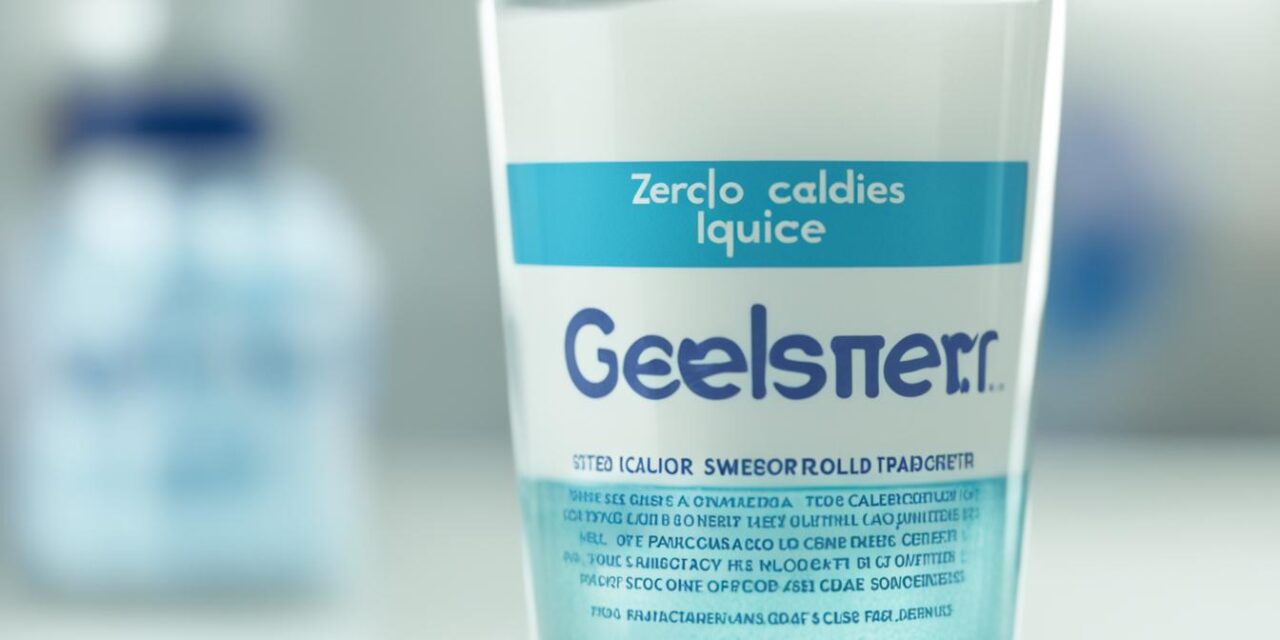Did you know that drinking two liters or more per week of artificially sweetened beverages can raise the risk of an irregular heartbeat called atrial fibrillation by a staggering 20%? That’s twice the risk compared to consuming added-sugar beverages! Pure, unsweetened juices, on the other hand, are associated with an 8% lower risk of atrial fibrillation.
Key Takeaways:
- Artificially sweetened beverages have a higher risk of causing irregular heartbeat compared to added-sugar beverages
- Drinking pure, unsweetened juices can lower the risk of atrial fibrillation
The Dangers of Atrial Fibrillation
Atrial fibrillation, also known as AFib, is a serious heart condition that can have devastating consequences. It is the leading cause of stroke in the United States, affecting millions of people worldwide. But the dangers of atrial fibrillation extend beyond strokes. This condition can also increase the risk of heart attacks, dementia, and kidney disease.
It’s alarming to note that the rate of atrial fibrillation is on the rise. Many factors contribute to the development of this condition, and it is often associated with several risk factors. Obesity, high blood pressure, diabetes, and smoking are just a few examples of the conditions that can lead to atrial fibrillation.
Understanding the Risk Factors
Let’s take a closer look at some of the risk factors for atrial fibrillation:
- Obesity: Excess weight puts extra strain on the heart and increases the likelihood of developing AFib.
- High Blood Pressure: Hypertension can damage the arteries and disrupt the normal rhythm of the heart.
- Diabetes: Uncontrolled diabetes can lead to changes in the structure and function of the heart, increasing the risk of AFib.
These risk factors are not to be taken lightly. They can have a significant impact on your heart health and overall well-being. If you have any of these conditions, it’s crucial to work with your healthcare provider to manage them effectively.
Preventing Atrial Fibrillation
While some risk factors for atrial fibrillation cannot be completely eliminated, there are steps you can take to reduce your risk:
- Maintain a healthy weight: Regular exercise and a balanced diet can help you maintain a healthy weight and lower your risk of atrial fibrillation.
- Manage your blood pressure: Regularly monitor your blood pressure and follow your healthcare provider’s recommendations to keep it within a healthy range.
- Control your diabetes: Keep your blood sugar levels in check through proper diet, medication, and lifestyle modifications.
- Avoid smoking: Quitting smoking is one of the best things you can do for your heart health and overall well-being.
In addition to these preventive measures, it’s essential to listen to your body and seek medical attention if you experience any symptoms of atrial fibrillation. Early detection and treatment can make a significant difference in managing this condition and reducing your risk of complications.
“The rate of atrial fibrillation is growing, and it is often associated with risk factors such as obesity, high blood pressure, diabetes, and smoking.”
| Risk Factors | Prevalence |
|---|---|
| Obesity | 30% of adults in the United States |
| High Blood Pressure | Approximately 45% of adults worldwide |
| Diabetes | 10.5% of adults in the United States |
| Smoking | 14% of adults in the United States |
The Role of Artificial Sweeteners
Artificial sweeteners, including zero-calorie sweeteners, have become increasingly popular as sugar substitutes. These sweeteners promise a guilt-free way to enjoy the sweet taste without the added calories. However, it’s important to understand the potential health risks associated with artificial sweeteners.
While some people turn to artificial sweeteners to help with weight management or to satisfy their sweet tooth, research has suggested a link between artificial sweeteners and adverse health effects. One study found that regular consumption of artificial sweeteners, such as those found in diet sodas, was associated with an increased risk of atrial fibrillation, an irregular heartbeat that can lead to serious health complications like stroke and heart disease.
Additionally, artificial sweeteners have also been associated with an increased risk of metabolic disorders, such as type 2 diabetes and obesity. These sweeteners can disrupt the body’s natural metabolic processes and contribute to weight gain and insulin resistance.
“The artificial sweeteners are quickly absorbed into the bloodstream and can affect the cells of the heart and blood vessels,” says Dr. Laura Svetkey, a cardiologist at Duke University.
While more research is needed to fully understand the health consequences of artificial sweeteners, it is wise to exercise caution and limit their consumption. Opting for natural sweeteners like honey or maple syrup, or reducing overall sweetener intake, may be a healthier alternative.
“It’s important to remember that just because a food or beverage is labeled ‘zero calorie’ or ‘sugar-free’ doesn’t mean it’s completely harmless,” warns Dr. Svetkey. “Everything should be consumed in moderation, including artificial sweeteners.”
When it comes to your health, it’s always best to prioritize whole, unprocessed foods and natural sources of sweetness. Pay attention to your body’s signals and choose a balanced approach to your diet. Your heart and overall well-being will thank you.
The Truth About Sugar Substitutes
If you’re looking to cut back on sugar without sacrificing sweetness, sugar substitutes can seem like a tempting solution. But what are the nutrition facts? How do they compare to regular sugar in terms of calories and carbohydrates? And are there any hidden health effects you should be aware of? Let’s dive into the truth about sugar substitutes.
Calories and Carbohydrates
One of the main advantages of sugar substitutes is their low calorie and carbohydrate content. Take erythritol, for example. This popular sugar substitute offers the sweet taste you crave with little to no impact on your waistline. In fact, a teaspoon of erythritol contains just 0.2 calories and 0.8 grams of carbohydrates, while a teaspoon of regular sugar contains 16 calories and 4 grams of carbohydrates. That’s a significant difference!
Beware of Bone Health
“Did you know that not all sugar substitutes are created equal? Some carbonated beverages sweetened with phosphoric acid can have negative effects on bone health. So, while indulging in a zero-calorie soda may seem like a guilt-free choice, it’s important to consider the potential impact on your bones.”
To ensure you’re maintaining good bone health, pay close attention to the type of sugar substitute you’re consuming and its potential effects. To avoid any risks to your bone health, check the ingredients list and nutritional labels of carbonated beverages and other products to see if they contain any bone-damaging additives. Remember, knowledge is power when it comes to making informed choices!
Hidden Sources of Sugar
While sugar substitutes may seem like a great alternative to sugar, it’s important to be aware of hidden sources of sugar in “no sugar added” foods. Many products that claim to be sugar-free or low in sugar may still contain other sweeteners or ingredients that can impact your blood sugar levels. Always read the labels carefully and look for any hidden sources of sugar to ensure you’re making the best choices for your health.
| Sugar Substitutes | Nutrition Facts (per teaspoon) |
|---|---|
| Erythritol | 0.2 calories, 0.8g carbohydrates |
| Regular Sugar | 16 calories, 4g carbohydrates |
Potential Health Risks and Side Effects
When it comes to artificial sweeteners and sugar alcohols, there are important health risks and side effects that you need to be aware of. While these sugar substitutes may seem like a healthier alternative to traditional sugar, their consumption can have unintended consequences for your well-being.
The Dark Side of Artificial Sweeteners
Artificial sweeteners, commonly found in diet sodas, low-calorie desserts, and sugar-free products, have been linked to a range of health issues. One concerning aspect is their potential to increase cravings for sugary foods. Despite their zero-calorie nature, artificial sweeteners can stimulate your taste buds and leave you wanting even more sweetness. It’s like a never-ending battle between your desire for a sugar fix and your efforts to cut back on calories.
“Just one more diet soda won’t hurt,” you tell yourself, as you find yourself reaching for another can. But little do you know, those zero-calorie bubbles are fueling your sweet tooth and making it harder to resist the allure of sugary treats.
In addition to the increased cravings, artificial sweeteners have also been associated with digestive issues. Many people experience bloating, gas, and even diarrhea after consuming products containing artificial sweeteners. These digestive disturbances can disrupt your gut health, which plays a crucial role in overall well-being.
The Slippery Slope of Sugar Alcohols
Sugar alcohols, such as xylitol and erythritol, are commonly used in sugar-free candies, chewing gums, and baked goods. While these sweeteners may provide a lower calorie alternative, they can also cause digestive issues similar to those of artificial sweeteners. The presence of sugar alcohols in your diet can lead to bloating, gas, and an overall uncomfortable feeling in your stomach.
It’s important to note that the link between artificial sweeteners and cancer risk is still under debate. While some studies have suggested a potential connection, more research is needed to fully understand the implications. However, it’s always wise to consume artificial sweeteners in moderation and be mindful of your personal tolerance and preferences.
When it comes to your health, it’s crucial to consider the potential risks and side effects of consuming artificial sweeteners and sugar alcohols. While they may seem like a convenient way to satisfy your sweet tooth without the added calories, their impact on your cravings, digestion, and gut health cannot be ignored.
| Health Risks | Side Effects |
|---|---|
| Increased cravings for sugary foods | Digestive issues (bloating, gas, diarrhea) |
| Disruption of gut health |
Remember, moderation is key. Instead of relying solely on artificial sweeteners and sugar substitutes, aim for a well-balanced diet that includes whole, unprocessed foods. Your body will thank you for it in the long run!
Conclusion
Zero-calorie sweeteners can be a convenient option for those looking to reduce their sugar intake, but moderation is key. While they can help satisfy your sweet tooth without adding extra calories, it is important to be aware of the potential risks and side effects.
Remember, no single food or ingredient alone determines your overall health. It’s always best to focus on a balanced diet consisting of whole, unprocessed foods to ensure you’re getting the essential nutrients your body needs.
When it comes to weight loss strategies, listening to your body and its unique needs is crucial. Pay attention to how different foods and sweeteners make you feel. Some people may experience digestive issues or increased cravings when consuming artificial sweeteners, while others may tolerate them well.
Ultimately, finding what works best for you and your health goals is about finding the right balance. Incorporate zero-calorie sweeteners in moderation, while also prioritizing nutrient-dense options. Your journey to a healthier lifestyle is a personalized one, and by making informed choices and practicing moderation, you can enjoy a well-rounded and sustainable approach to nutrition and wellness.
FAQ
Are “Zero Calorie” Sweeteners a Health Food or a Diet Trap?
What are the dangers of atrial fibrillation?
What role do artificial sweeteners play in health risks?
What is the truth about sugar substitutes?
What are the potential health risks and side effects of artificial sweeteners?
What is the conclusion about “Zero Calorie” Sweeteners?
MORE SOURCES TO READ:
- https://uk.news.yahoo.com/diet-sugary-drinks-boost-risk-100037420.html
- https://www.garagegymreviews.com/what-is-erythritol
- https://www.beginwithinnutrition.com/healthy-living-journal/is-coke-zero-bad-for-you/
![]()














Recent Comments